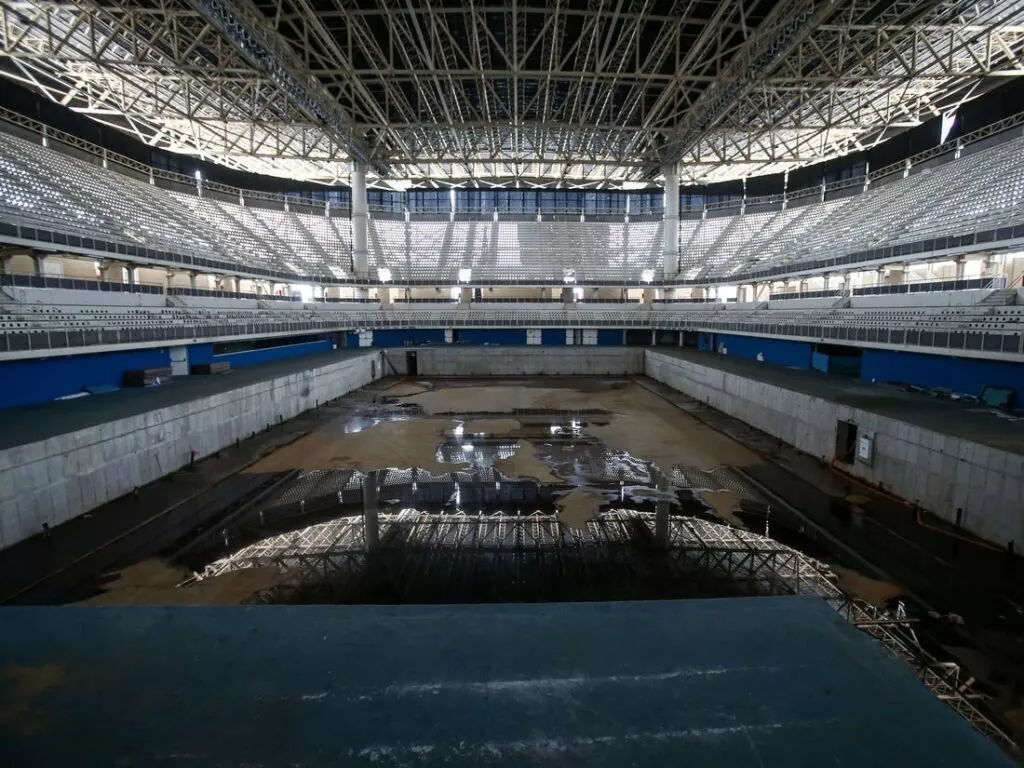How Rio Olympics ruined Brazil

(Courtesy : bustle)
With high crime rate and prevalent corruption, hosting the Olympic Games in 2016 certainly proved costly for the South American nation.
“During the Rio Olympics, the city was really trying hard to keep things together. But the minute the Olympics were over, the whole thing disintegrated,” said Brazilian Professor of International Relations, Mr Oliver Stuenkel.
Remember the Maracana stadium that hosted the 2014 FIFA World Cup final and the opening and closing ceremonies of 2016 Rio Olympics? In 2017, Electric utility company Light cut off all power to the stadium in reaction to a quarrel between Rio state government and the Olympic organizers over $1million of unpaid electricity bills.
While Athens was still fairly healthy prior to hosting the 2004 Olympics, the scenario in Rio has always been gory. An NPR report stated that almost 60,000 people were murdered in Brazil in 2014, most of them with guns. It made the country ‘the deadliest place in the world’ outside Syria.
ALSO READ: How Greece never recovered from Athens 2004
The situation was so brass-necked that in July 2016, a foot and other body parts had appeared on the shore where Olympians were to play volleyball a week later. The same week, tens of thousands of people in the capital had organised demonstrations against corruption done by leaders of Brazil’s Congress.

A survey by the Associated Press during the same period had indicated that the waterways of Rio were ‘contaminated with raw human sewage teeming with dangerous viruses and bacteria,’ putting nearly 1,400 athletes at risk of getting violently ill in water competitions.
The impeachment of Dilma Rousseff did not help matters. Politically, the country was in shreds. Michael Temer took over and guided the country during and in the post-Olympic period. It wasn’t very smooth, and to be fair, rocky, but the man ensured that the mega-event was organised without any blemish.
According to the World Bank, in 2013, about 9% of Brazil’s roughly 200 million people lived on less than $3.10 per day, a number that certainly doesn’t look bright enough in economic terms. The International Olympic Committee usually advertises and vends the games to countries on the promise that it will help the hosts, but historical evidence shows it mostly hasn’t. And it sure didn’t help Brazil – a country that spent nearly $20 billion with a return of only $4 billion to $4.5 billion.
Let us first take a look at the infrastructural changes. The ephemeral grandeur of the Maracana Stadium waned off in no time. It had seats ripped out, paint was peeling from interior walls, and the playing field (which at one point was reported to be infected by worms) turned brown due to the lack of water.
It was Greece 2004 all over again. The Private investment did not come in the two arenas; a tennis centre and a velodrome built inside the Olympic Park, and have been passed over to the federal government. The Athletes’ village is open but very few can afford it. Thousands living in Rio’s slums were asked to vacate the area to give way to the new Olympic Park for the 2016’s event.
Several of these people still remain displaced. Rio de Janeiro also reported record-breaking crime in 2016 in almost all categories from homicides to robbery and also a massive fall in employment numbers.
The economy of Brazil continues to recover from the 2015–2016 recession– the freefall helped by the Olympics-and achieved GDP growth of slightly more than 1% in 2018. While the country continues to show an upward curve that’s very flat, the world will have to wait for a long time for an event of such magnitude to happen again anytime soon.
For more updates, follow Khel Now on Facebook, Twitter, Instagram, Youtube; download the Khel Now Android App or IOS App and join our community on Whatsapp & Telegram.
Where passion meets insight — blending breaking news, in-depth strategic analysis, viral moments, and jaw-dropping plays into powerful sports content designed to entertain, inform, and keep you connected to your favorite teams and athletes. Expect daily updates, expert commentary and coverage that never leaves a fan behind.